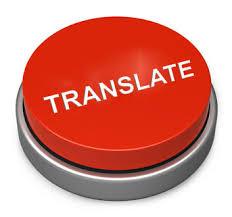Arabic translation services and AI
Artificial intelligence (AI) has become the talk of the town across the entire world, given the extensive possibilities and capabilities it has created.
AI is also posing a significant challenge to a variety of human jobs in a multitude of areas and fields, one of which is translation services.
The current and future impact of AI on Arabic translation services providers is undeniable, all the more so with any further advances in AI. But does that mean AI has spelled the end of the human Arabic translator job?
Accuracy in the balance
For many users, AI delivers fast and free translation, and that is all they really care about.
However, how accurate and faithful the Arabic translation is to the original text, for instance, is the key question.
The accuracy of the produced translation – whether from Arabic to English or English to Arabic – is vital for certain categories of users, companies and institutions.
For instance, a legal translation, where a minor error can cause huge troubles, is too risky to deliver via a machine. A law firm requiring a translation service for court rulings or legal documents would thus find it too great a risk to use AI.
Similarly, machine translation can be a huge risk if used in medical and religious fields, among others.
Hence, such fields and areas will always require an accurate and reliable translation.AI-generated Arabic translations may be useful just in offering a general, broad idea about what the content in the original is about.
However, if the accuracy and professionalism of the translation is essential, then human brains must be involved, simply because translating from Arabic to English or English to Arabic professionally requires human skills.
Human translators irreplaceable - for now
Only human translators will be able to fully and comprehensively grasp of the true meaning of an Arabic text and are therefore in a much better place to render it in a correct and accurate manner into English - or vice versa.
This is because the Arabic language teems with intricacies and subtle differences, and should absolutely be approached extremely carefully to get the meaning right.
To clarify this point, let’s take one simple example:
I put a short Arabic-language phrase into QuillBot and requested it be translated to English.

In the phrase, in the image above, there is an Arabic word (pronunciation: saafir/saafar) that can either be a verb (past tense) or an adjective.
QuillBot failed to understand the full meaning and entire context of the phrase and thus used it as a verb, while in fact it should have been used an adjective in this instance.
As a verb, it meant: travelled.
As an adjective, it meant: barefaced, flagrant or blatant.
Thus, QuillBot's failure to use the correct version of the word resulted in a complete change in the meaning – eventually rendering a mistranslation.
This little example was just to demonstrate that, no matter how advanced AI tools have become in the area of Arabic to English or English to Arabic translation, they are by no means a reliable alternative to a human translator when it comes to accuracy, faithfulness and quality. The human Arabic translator job is - for now - safe.
At Loghat Arabic Translation, we have highly experienced human Arabic-English translators who deliver a sterling service whether from English to Arabic or Arabic to English. Get in touch with us today if you need a professional and reliable translation.
